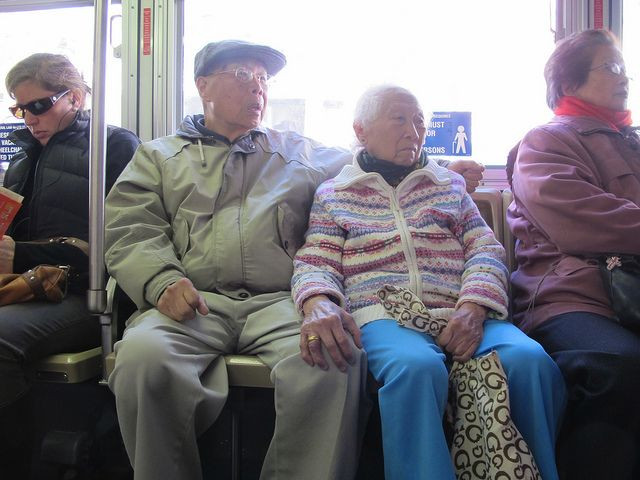Measuring Spine Angle in Elderly Can Predict Future Disability

The shape of a person's spine may indicate future problems in old age.
A study published in the Journals of Gerontology Series A: Biological Sciences and Medical Sciences has shown that the angle of a person's spine's curve can predict nursing home admission rates in the future, as well as if that individual would need home care assistance when he or she becomes elderly.
The research team from Japan found that the angle between the first thoracic vertebra and the first sacral vertebra, called trunk angle, can accurately predict who would need help for activity of daily living in old age. Such activities include bathing, feeding, dressing and getting in and out of a bed or chair.
"Spinal posture changes with age, but accumulated evidence shows that good spinal posture is important in allowed the aged to maintain independent lives," the authors mention in the study.
Researchers examined 804 people who were aged 65 and older, lived in a town close to 62 miles from Tokyo and were living independently without the need of assistance. They then measured the spinal posture of each participant using a non-invasive technique. The device gave four measurements but only that of trunk angle indicated the dependence on assistance for daily tasks when participants were followed up 4.5 years later.
Study participants who had a significantly larger angle of their spine were almost 3.5 times as likely to need assistance at the time of follow up.
Knowing ahead of time if someone will need assistance or be admitted to a care facility will allow family members to make better decisions in the care of their elderly family members. Most families only move people to assistance facilities or hire assistants to help only after an accident has occurred. Having the predictive power to determine who would be in the greatest need could save lives in the long run.
The research published in the Journals of Gerontology Series A: Biological Sciences and Medical Sciences can be found here.
Published by Medicaldaily.com



























